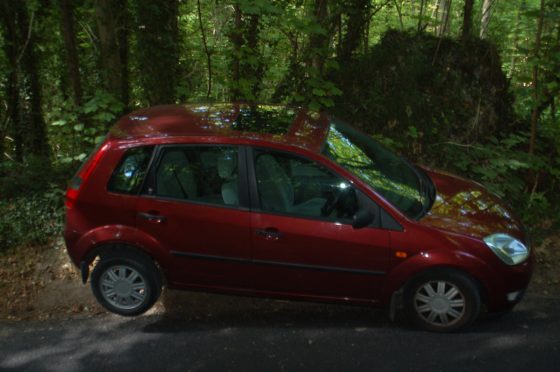
It was a bright morning on 6 June 2010 when I pulled into a petrol station in the UK driving my red Ford Fiesta. It could have been any petrol station for all I cared. I just needed petrol. But it turned out to be a BP station. This made me stop and think.
Bad news for BP
I filled up and went over to pay at the counter. Some of the newspapers on sale on the forecourt had big headlines about how BP would be made to pay for damage from the Deepwater Horizon oil spill by the US government. BP would have to set aside $20 billion to cover their liabilities. The catastrophe had been front-page news for weeks with the eyes of the world on BP’s performance at stopping the leak.
The oil spill was a gigantic nightmare for a giant corporation. BP was desperately trying to plug a leak a mile below sea level where crude oil was gushing out. The company was operating at the frontiers of deep sea technology and they had unleashed a dark force of nature that they could do little to control for months. The blowout happened on 20 April 2010 and the leaking oil well was temporarily capped in mid-July and finally sealed once and for all on 19 September 2010. It was the worst offshore platform spill in history with the release of 4.9 million barrels of oil.
BP paid dearly for their mistakes and was held largely accountable for this disaster. Their reputation will be tarnished for years to come. Even before the disaster, their safety record was far from clean and I have heard that they had a reputation in the oil industry for shaving safety margins and cutting corners. I happened to be visiting Houston, Texas, that year after the disaster. As one engineer in the oil industry in Houston told me at the time: “There is technology available to prevent this kind of blowout but BP wasn’t using it.”
What’s worrying for BP is that a customer like me, who was previously indifferent to what brand of petrol I buy, begins to consider steering clear of BP. How can I buy this dirty product from this company after what happened in the Gulf of Mexico? At the time, I also began to question the whole future of oil. What is the real cost to the environment of the petrol I am pouring into my tank?
Oil on my hands
My reaction was not a sense of outrage at BP. In a way, I felt slightly implicated in the catastrophe. I have some of that spilt oil on my hands. After all, every time I fill up my tank with petrol, I am perpetuating the hunt for oil in more and more remote and risky corners of the world. And it is definitely a risky business. Oil spills like this are just one of the calculated risks companies take when extracting and transporting oil.
A revolution is happening
Fast forward to today. Finally, a revolution is happening in the automotive industry. The combustion engine, which has dominated the industry for more than one hundred years, is set to be replaced in coming years by electric motors.
Electric cars are becoming mainstream. Did you know that Tesla has come from nowhere to become the best-selling big luxury saloon car in the US?
Industry spokesmen are talking about a paradigm shift. Car manufacturers churning out conventional cars driven by fossil fuels are being gripped by a rising sense of panic. Some of them are adapting to the change such as Volvo who have said that all the cars they produce from 2019 will be fully electric or hybrid. Ford says they will be bringing out 13 new electric models in the next few years. Nissan is leading the way with its Leaf model first launched in 2011.
Some governments are encouraging the shift. China has legislated that 8% of all new cars sold should be electric by 2020. In Norway, an oil-producing country, half of new cars sold today are either electric or hybrids thanks to a carrot and stick policy by the government. They heavily tax diesel and petrol cars that they don’t want on the roads while giving big incentives such as free parking to the electric cars they do want.
Cities are following suit. Paris plans to limit access to its streets to electric vehicles by 2030. Similar measures will be introduced in the city centre of Oxford in the UK by 2030 to create a zero emission zone.
I watch with anticipation as the dirty diesel-driven and petrol-guzzling engines appear to be on the way out. If so, I may never have to visit a petrol station again, British Petroleum or any other.
By Peter Goddard
Reference: In Business: Electric cars. Programme presented by Peter Morgan and broadcast on BBC Radio 4 on 11 January 2018 at 8.30 pm.
